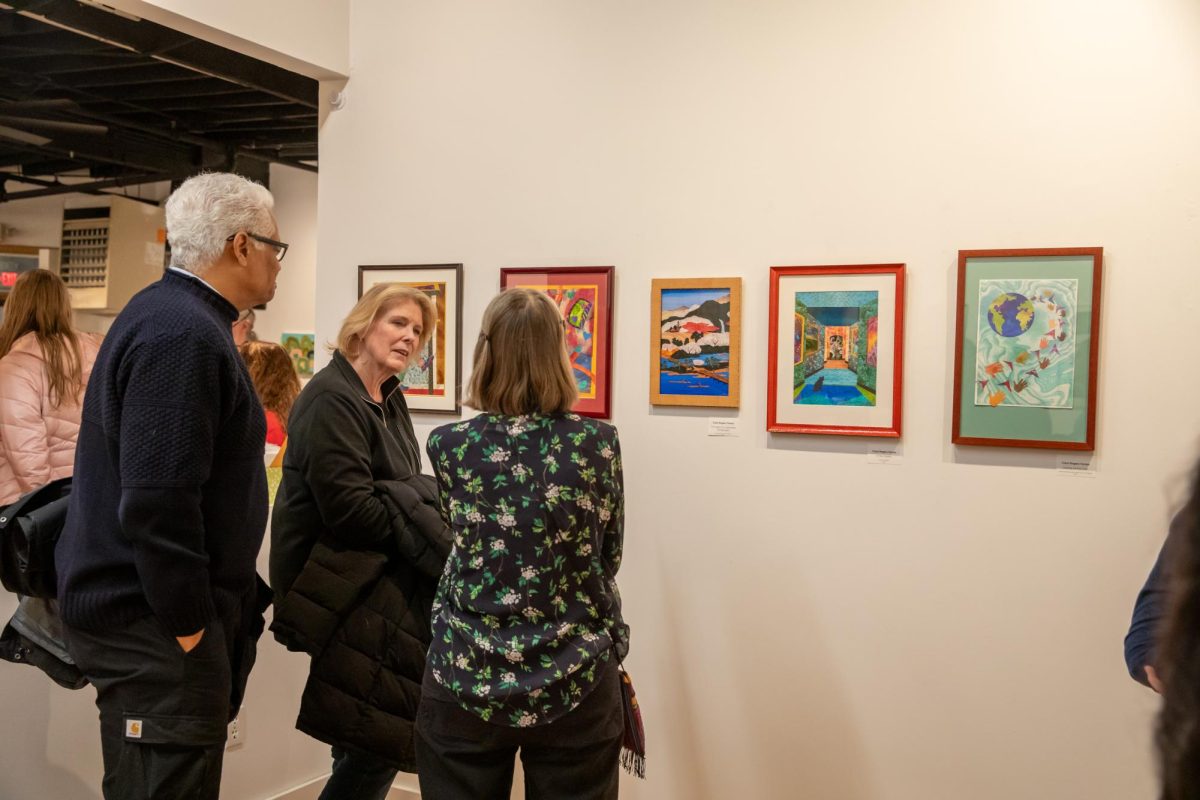Razor-sharp sentence-wielding writer Mary Karr has lived such a life that itâÄôs allowed her to pen not one, not two, but three gripping memoirs. Her latest is âÄúLit,âÄù the story of her battle with alcohol and mental illness and how an unlikely belief in a God she had eschewed ultimately saved her. I was at Barnes & Noble an hour before this and I went into the biography section and noticed about 60 percent of the books are memoirs. When you put out âÄúThe LiarsâÄô ClubâÄù in 1995, the genre was quite different. How do you feel about its current incarnation? I distinguish between what I do and what I call âÄúsound bite memoir.âÄù If you can sum up what a memoir is about in one phrase, then itâÄôs not really a literary memoir. ItâÄôs not trying to create a whole world; itâÄôs looking at one aspect of somebody, usually in a pretty two-dimensional way. I got hit on the head by a brick; IâÄôm a heroin addict; IâÄôm a teenage sex slave âÄî itâÄôs kind of none of my business. I get them in the mail to blurb, but I mostly give them away. On Jezebel.com, its members were talking about an interview you had done where you said something to the effect of, âÄúGod likes me better.âÄù Then it turned into a huge discussion of the womenâÄôs memoir genre and how it can often be considered very vain. What do you think about that? That was a joke. ItâÄôs none of my business. I want everybody to like what I write, but if they donâÄôt thereâÄôs nothing I can do about it. What is your relationship with faith now? Has it changed since the final draft of the book? I think I have more faith every year. ItâÄôs obviously up and down; there are days I donâÄôt believe in anything, days I just think IâÄôm an idiot. I still pray a lot. I go to Mass. I go to confession. IâÄôm a Catholic; I converted 10 years ago. I read you threw out thousands of pages while writing âÄúLit.âÄù Why? What didnâÄôt make the cut? ThatâÄôs the difference between this memoir and others. I spent seven years writing it. Glamour magazine had how long between Valerie BertinelliâÄôs first memoir and her latest: 18 months. Melissa Gilbert: Three years. Me? Nine years. The idea is that it would horrify me if I bored people. I want it to be true. ItâÄôs not that IâÄôm making things up; they have to be psychologically true to the self IâÄôm writing about at the time, trying to create an experience for the reader, put their attention in it and get a whole world. Is this characteristic of your writing process? Probably. I do 60 drafts of a poem. Is poetry harder to write than nonfiction? Aesthetically, poetry is harder, nonfiction is harder emotionally. ItâÄôs more punishing to be immersed in it. The moral stakes are high. You care; youâÄôre taking people you love most in the world and making them characters. Your son is a prominent figure in âÄúLit.âÄù Has he read it? How does he feel about having this torrid time chronicled? WhatâÄôs his relationship to faith, to alcohol? You would have to ask him. He doesnâÄôt read the books. I can understand why; thereâÄôs sexual activity in the first two. He did read the first two prologues [of âÄúLitâÄù]. I did with him what I do with everybody I write about; I contact before IâÄôve written a word. I said, âÄúThis is what I want to write about. Is this going to bother you if I write about this? YouâÄôll have a chance to look at it when itâÄôs done.âÄù ThereâÄôs nothing in the book he doesnâÄôt know. He knows in âÄúLiarâÄôs ClubâÄù I was sexually assaulted. Maybe when heâÄôs older, his kids will wanna know things. HeâÄôs 23. I do have a sense of waiting for him to be old enough. I turned down a lot of money for this memoir and almost three years later I thought of a way to write it. Are there more stories coming out of you? I know it sounds insane for me to say I pray about what I write but I do, I pray about it. ItâÄôs part of my faith to try. I donâÄôt get long-term plans, like do I take an advance on this? I turned it down when I needed it for my sonâÄôs tuition. IâÄôm working on a book of poems now. IâÄôm interested in writing a book about memoir like âÄúAspects of the NovelâÄù or John GardnerâÄôs âÄúOn Moral Fiction,âÄù a book that would be instructive and critical. IâÄôm taking a literary nonfiction class right now. What advice to do you have for those of us who want to write a memoir and arenâÄôt entirely sure how to approach it? The advice I got from Toby Wolff was, âÄúTake no care for your dignity.âÄù DonâÄôt care how you appear. Be wary if you feel the need to appear sexy, tough, nice, hip. We have these ways we want to be looked at in the world and theyâÄôll interfere with what you choose to write about. Be hyper-vigilant to your own motives. If you want to settle a score, buy a firearm. DonâÄôt make anything up. With memoir, youâÄôre given events and you write the meaning of them. With fiction, youâÄôre given a meaning and you write the event. Try not to make hard things look super hard. DonâÄôt exaggerate âÄî you run the risk of making yourself a grotesque. ItâÄôs honoring who you were at the time of the book. If you had an awful childhood, think about how you survived. How do you remember it all? I donâÄôt remember as well as I think I do, I tell myself. The childhood self, I did have an extraordinarily good memory. In a lot of this book I spend time saying what I donâÄôt remember. If youâÄôre very stimulated, if youâÄôre having sex, if your parents are having a big fight and theyâÄôre going to burn the house down, you have a heightened sense of adrenaline and thereâÄôs a lot of feeling attached to the memory. TheyâÄôre often inaccurate in terms of time, but theyâÄôre very clear. IâÄôve never had anybody come up to me and say, âÄúThis didnâÄôt happen,âÄù and IâÄôve been doing it for 14 years. How do you approach writing about your family? My mother was sober when I wrote âÄúThe LiarsâÄô Club.âÄù My father was dead, my mother was sober. She wasnâÄôt that interested in how people felt about her. She wasnâÄôt worried about how people saw her or she wouldnâÄôt have married seven times. SheâÄôs very cool. If she was not your mother you would like her a lot.
PHOTO COURTESY HARPERCOLLINS
Interview: Mary Karr
In the midst of her book tour, poet/memoirist Mary Karr chats with A&E about her new tome, “Lit.”
by Kara Nesvig
Published November 18, 2009
0
More to Discover







